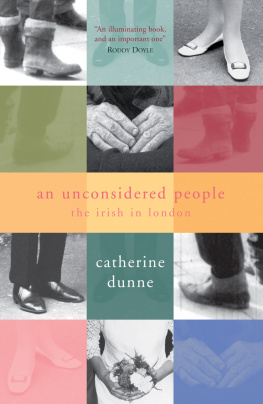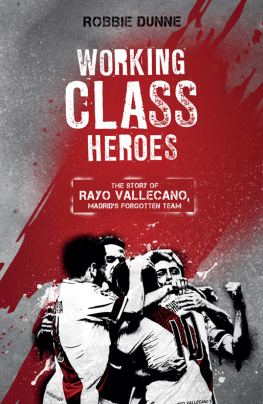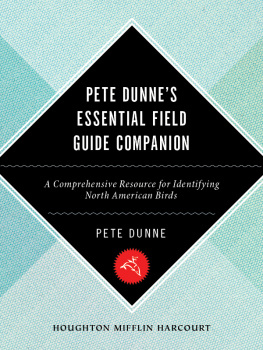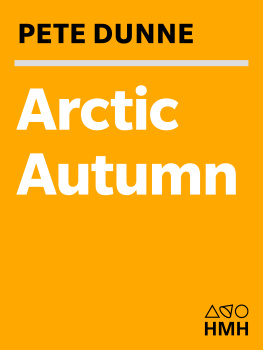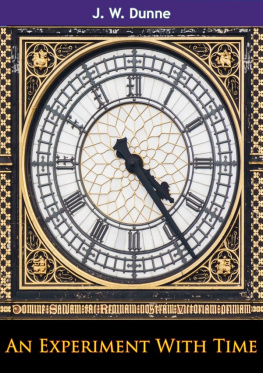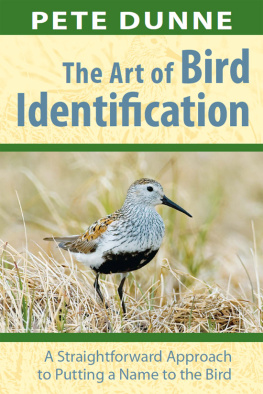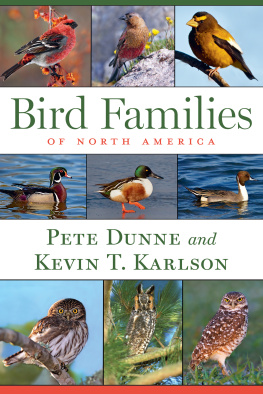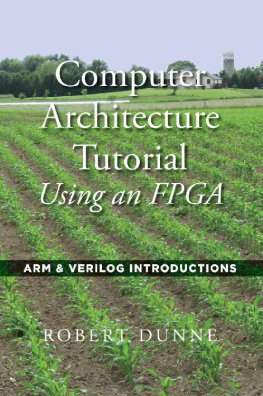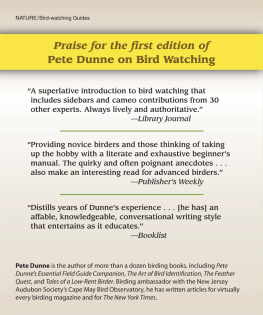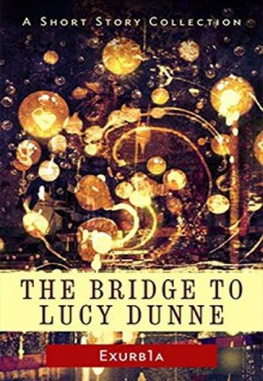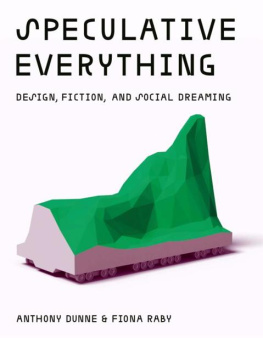Dunne - An Unconsidered People
Here you can read online Dunne - An Unconsidered People full text of the book (entire story) in english for free. Download pdf and epub, get meaning, cover and reviews about this ebook. year: 2003, publisher: Lightning Source Inc. (Tier 1);New Island Books, genre: Detective and thriller. Description of the work, (preface) as well as reviews are available. Best literature library LitArk.com created for fans of good reading and offers a wide selection of genres:
Romance novel
Science fiction
Adventure
Detective
Science
History
Home and family
Prose
Art
Politics
Computer
Non-fiction
Religion
Business
Children
Humor
Choose a favorite category and find really read worthwhile books. Enjoy immersion in the world of imagination, feel the emotions of the characters or learn something new for yourself, make an fascinating discovery.
- Book:An Unconsidered People
- Author:
- Publisher:Lightning Source Inc. (Tier 1);New Island Books
- Genre:
- Year:2003
- Rating:4 / 5
- Favourites:Add to favourites
- Your mark:
- 80
- 1
- 2
- 3
- 4
- 5
An Unconsidered People: summary, description and annotation
We offer to read an annotation, description, summary or preface (depends on what the author of the book "An Unconsidered People" wrote himself). If you haven't found the necessary information about the book — write in the comments, we will try to find it.
An Unconsidered People — read online for free the complete book (whole text) full work
Below is the text of the book, divided by pages. System saving the place of the last page read, allows you to conveniently read the book "An Unconsidered People" online for free, without having to search again every time where you left off. Put a bookmark, and you can go to the page where you finished reading at any time.
Font size:
Interval:
Bookmark:
an unconsidered people
the irish in london
catherine
dunne

an unconsidered people
the irish in london
Copyright 2003 CATHERINE DUNNE
AN UNCONSIDERED PEOPLE
First published 2003
by New Island Books
16 Priory Hall Office Park
Stillorgan
County Dublin
www.newisland.ie
The author has asserted her moral rights.
ISBN 978-1-84840-546-2
EPUB ISBN 978-1-84840-546-2
MOBI ISBN 978-1-84840-547-9
All rights reserved. The material in this publication is protected by copyright law. Except as may be permitted by law, no part of the material may be reproduced (including by storage in a retrieval system) or transmitted in any form or by any means; adapted; rented or lent without the written permission of the copyright owners.
British Library Cataloguing in Publication Data.
A CIP catalogue record for this book is available from the British Library.
New Island received financial assistance from
The Arts Council (An Chomhairle Ealaon), Dublin, Ireland.

To Phyllis Izzard, for starting all of this on a boat to Venice seventeen years ago.
And to James Izzard, for showing me how the original Roman road now the A5 passes through Watling Street, Kilburn, Cricklewood, Burnt Oak, Edgware and Stanmore. It then makes its way across country through Milton Keynes, Stratford, Oswestry and Llangollen. Finally, the same road ends up after 239 miles in Holyhead, which is where this journey begins.

Introduction
THERE WAS NO BACK DOOR,
NOTHING TO GO BACK TO
In no other European country was emigration so essential a prerequisite for the preservation of the society.
J. J. Lee, Ireland 19121985: politics and society
It is Saturday night at the Galtymore Dance Club in Cricklewood. The mirrored globe above us revolves slowly, showering the sedate dancers below with multicoloured shards of light. Couples, from the barely middle-aged to the frankly elderly, waltz or quickstep to the strains of Declan Nerney. They make smooth, stately progress around the polished floor. There are no collisions: theres still plenty of room. The tables at the side are filling up quickly, the bar is doing a brisk business, but its early yet. From beyond the not-quite soundproof partition comes the muffled beat of Bagatelle for the younger people.
This is the last-remaining Irish dancehall in London. The Round Tower, the Estate, the Garryowen, the Hammersmith Palais, the Gresham, the Blarney all major community centres for the Irish in London in the 1950s and 1960s theyre all gone now. But the Galtymore hangs on a little frayed and faded at the edges, to be sure, but nevertheless still there a busy and buzzing focus for the Irish still living in Kilburn and Cricklewood and beyond.
For the half-million Irish people who left these shores in the 1950s, places like the Galtymore were much more than somewhere to go at the weekend. They were part of a vital network of friendly faces and accents, an island of familiarity in what was, at least initially, an urban ocean of strangeness and isolation. According to Kathleen Morrissey, It [the Galtymore] was a great big network, really. For me, in so many ways, it was the most significant place in my life in London.
All through the 1950s, as the stream of emigrants swelled, Irish communities throughout Britain pulled ever tighter and closer together. There was no shortage of company: four out of every five children born in Ireland between 1931 and 1941 ended up taking the boat, with eighty per cent of them destined for Britain.
Many who took the short, uncomfortable journey on the cattle-boat hoped that the economic imperative would be a short-lived one. We never meant to stay, is a constant refrain among many of the London Irish, some of them well into their fifth decade away from home. Their intention was to soon save up enough money to come back to Ireland as indeed, some of them did. Others realised that there was nothing to come back for : that they were gone for good. And still others went with a sense of adventure, feeling the need to escape the mundane and impoverished reality that was Ireland in the 1950s. Mary Walker says that she went to London for something different, just for a year, but that one years experience somehow ended up being forty-one years of experience. Whatever the hopes and aspirations, no two emigrant experiences were the same.
This book borrows the stories of ten people who left Ireland roughly fifty years ago. It is an attempt to feel the texture of ordinary lives in the 1950s; to celebrate extraordinary feats of survival and endurance; and to understand a little more of what happened to those who became lost, falling between the boundaries of family and state. In short, these are stories of ordinary lives, stories which take centre stage without apology. The narrators belong to that generation which it most conveniently served official Ireland to forget. Yet in their leaving, the half-million emigrants of the 1950s simultaneously prevented social revolt by providing a safety-valve for Irelands growing economic pressures and laid the foundations for what would later become Irelands economic miracle.
As early as 1953, it was obvious that the attitude of official Ireland towards these emigrants was a deeply ambiguous one. On the one hand, the deepening economic crisis meant that the departure of over forty thousand people each year was a relief those jobs, at least, did not have to be found: If emigration were to be stopped tomorrow, conditions favourable to social revolution might easily arise.
On the other hand, those who left were often portrayed as disloyal and self-seeking in some way. To leave de Valeras Ireland in search of a reasonable living elsewhere was somehow an obscurely selfish act. Ignoring the economic realities, de Valera neatly sidestepped pressures to help ease the plight of the emigrants in Britain by claiming:
work is available at home, and in conditions infinitely better from the point of both health and morals There is no doubt that many of those who emigrate could find employment at home at as good, or better, wages and with living conditions far better than they find in Britain.
The stories included in this book, and the many, many more not included due to restrictions of space, give the lie to this astonishing statement. In one form or another, the reality that there was nothing at home nothing to stay for, nothing to come back to was expressed by everyone I met. Resignation and acceptance of that fact were always the keynotes; there is a remarkable absence of bitterness among those who succeeded in making a new life for themselves, often under difficult conditions. As Phyllis Izzard says: There was nothing else to do apart from take the boat.
Thus a whole generation of Irish people did just that: they took the boat, unskilled, unprepared and unconsidered. They managed to become doubly invisible: victims of the diplomatic blind eye [the] catalogue of neglect within their own country, and invisible in their host community, too, where their white skin and ability to speak English masked the urgency of their needs. Nevertheless, their legacy is, ironically, a highly visible one:
In the 1940s and 1950s hundreds and thousands of young men and women left Ireland [They] contributed so much to the Irish economy when times were hard. In todays figures Irish emigrants were sending back 500750 million [635952 million] each year . It is because of those remittances that we now have the Celtic Tiger economy.
Next pageFont size:
Interval:
Bookmark:
Similar books «An Unconsidered People»
Look at similar books to An Unconsidered People. We have selected literature similar in name and meaning in the hope of providing readers with more options to find new, interesting, not yet read works.
Discussion, reviews of the book An Unconsidered People and just readers' own opinions. Leave your comments, write what you think about the work, its meaning or the main characters. Specify what exactly you liked and what you didn't like, and why you think so.

